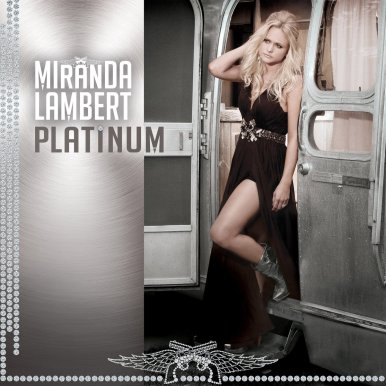I’m With Her

See You Around
* * * * 1/2
I’m With Her is a folk supergroup. Sara Watkins, a founding member of Nickel Creek, has been reaping the rewards of solo success since releasing her eponymous album in 2009. Sarah Jarosz began releasing albums that year as well. The final member is Aoife O’Donovan, lead singer of the Bluegrass band Crooked Still and the daughter of Brian O’Donovan, host of A Celtic Sojourn on WGBH Radio here in Boston.
The trio came together for an impromptu performance at the Telluride Bluegrass Festival in 2014 and released their two-song EP, Crossing Muddy Waters/Be My Husband in 2015. They gathered in Los Angeles and Vermont once their solo careers had slowed down a bit to record See You Around, which was produced by Ethan Johns in a tiny village near Bath, England at a recording studio owned by Peter Gabriel. The trio co-wrote the album together.
The album is rich with their tightly-woven harmonies and ear for crafting songs completely unique to themselves, that come together to create a wonderfully fully-formed record. The album begins strong, with the mid-tempo title track. “See You Around” crafts a tale of pain, with vivid imagery:
A constant ringing bell
Or the ocean in a shell I held up to my ear
While everything else
Is breaking like the waves down on the coastline
Breaking like the wine-stained glass that held my drink
Breaking like the heart that’s stuck inside my skin
Will it ever beat again
Or just go on bleeding ’til it’s empty
‘Til I fill it up again
I feel you baby
These aren’t fighting words, just a declaration
I feel you
So I guess I’ll be going now
I know you’re looking out for new eyes in the crowd
I’ll see you around
The gorgeous “Game To Lose” is a perfectly accentuated ballad anchored by Jarosz’s mandolin and Watkins’ warm and familiar fiddle. Watkins’ rich vocal tone is the centerpiece of “Ain’t That Fine,” while her falsetto leads the way on “Wild One.” The former is the sparse look at a budding relationship, while the latter is a cautionary tale and possibly my favorite song on the album. I also love “Waitsfield,” a jaunty and engaging instrumental.
Another standout moment is “Overland,” a striking lament on the promise of a new life far away from your current circumstances:
Goodbye brother, hello railroad
So long, Chicago
All these years, thought I was where I ought to be
But times are changing
This country’s growing
And I’m bound for San Francisco
Where a new life waits for me
“I-89,” which is an interstate that runs through both New Hampshire and Vermont, is actually an ode to finding an alternate escape route:
Waitin’ for the sight of headlights flashin’
Fussing with the dial on the radio
Burning through the pages of the Rand McNally
Fire in my belly gonna keep you warm
If there was another way out I’d take it
If there was another way down I’d go
If there was another way other than the highway
Show me on a map, point out the road
Two fiddle-laced ballads grace the back half of See You Around. “Crescent City” rides along at mid-tempo and relays the timeless message to make each moment of your life truly count. “Close It Down” is a tale of regret, with the protagonist falling for the charmer who has cast their spell on many a resident of the town where they reside.
“Ryland (Under The Apple Tree)” stands with “Ain’t That Fine,” in its depictions of the idyllic beginnings of a new relationship, but it strikes an ominous tone with the constant refrain: “under the apple tree, I planted for my love and me.” The final track is Gillian Welch’s “Hundred Miles,” which they perform with minimal accompaniment and partly a cappella.
It took me a bit to warm up to See You Around, but the nuances the trio brings to these songs are unique and captivating. This is clearly a record all their own, a great one indeed and well worth checking out.




